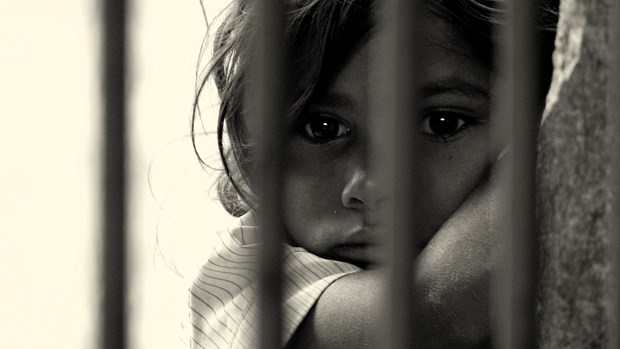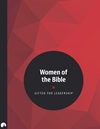What the Oppressed Can Teach Us About the Bible

God is taking me through an exercise in going global—right from my quiet time.
As I read through the Bible, I have a hunch that the lens I read through is just that—mine. So I’ve started seriously evaluating it: What “eyes” am I reading through? How do my culture and experiences shape my interpretations? How would I interpret the Word if I had different experiences? How would I interpret it if I were you?
Take the word “enemies,” for example. In the Psalms, we bump into this word a lot. Psalm 27:1–3, for instance, says this:
The Lord is my light and my salvation—
so why should I be afraid?
The Lord is my fortress, protecting me from danger,
so why should I tremble?
When evil people come to devour me,
when my enemies and foes attack me,
they will stumble and fall.
Though a mighty army surrounds me,
my heart will not be afraid.
Even if I am attacked,
I will remain confident.
As a white, suburban, middle-class American with a relatively untroubled childhood and teen experience, I collide with the word “enemies” in this passage. It’s difficult to relate. “Enemies” for me means those people who have irritated me over the years. Pretty petty enemies—not the type David is writing about.
How would I read the word “enemies” if my life had been different? What if I were a Congolese village girl named Dina, who, on my way home one day after harvesting beans, was gang-raped by local soldiers simply because I was a girl alone? My experiences would give me a much more visceral, harrowing mental picture of enemies. (This really happened and continues to happen, by the way. Check out Half the Sky for more.)
Imagining how Dina and others like her would read such passages has challenged my understanding of God’s character. I’ve started asking him hard questions like: Are you really strong enough to help people like Dina who face such hideous trauma not to be afraid? Are you really that sufficient? For me, the obvious next question is: Am I depending on you to be that sufficient for me?
Another key scriptural concept that has me wondering is “justice,” as in Matthew 12:15–21. From my cultural and ethnic background, “justice” is a positive word, something that can be satisfied here on earth—I’ve seen it happen. Criminals in my neighborhood are generally caught and prosecuted by decent policemen and judges. The problem is that my experience is rarer than I’d like to believe—even in our own country.
For many around the world, “justice” takes on a very different meaning. If I imagine that I’m a low-caste Indian woman named Meena whose 10-year-old daughter was kidnapped and forced into prostitution, my idea of justice changes drastically. I imagine Meena pleading with the police to no end, desperate to find someone who will help her rescue her daughter.
To Meena, I imagine Matthew 12 presents a curious kind of justice. No fighting or shouting or raising your voice (v. 19)? At the same time, the passage assures us that, “finally he will cause justice to be victorious” (v. 20).
This justice takes two forms. During his first coming, Jesus poured himself out for his own enemies—that would be us, and Meena, and Dina, thanks to sin. With his own body, out of indescribable love, he took the hit for us and satisfied God’s perfect justice. Yet this passage also hints at a final justice, still awaited, fleshed out in Isaiah 63 when Jesus at his second coming will obliterate oppression forever. Meena and Dina and others with ruthless oppressors will see their enemies punished. How much more weighty this justice must feel for them than for those of us whose “enemies” are simply irritants. We can gain so much by reading these passages through their eyes.
I encourage us, as leaders, to begin reading the Bible in this way. When we do, we’ll learn much for ourselves but also become better leaders. Begin by learning about the oppressed around the world, reading up and asking questions sensitively. Next, begin sharing these stories with those within your influence. Bringing these systemic cruelties to light can spur others to action on behalf of the oppressed, effectively empowering them to work alongside God in the world. It can also create a safe space for those under our care who have suffered trauma to open up about their experiences and seek help.
Frankly, learning how to read the Bible from an oppressed perspective stirs our emotions. Righteous anger, compassion, sadness, and empathy all wake up within us, rousing our love and sensitivity—not just for those far away, but also for those in our own congregations, people we shepherd. With this new perspective, we can learn to notice others’ painful emotions and take them seriously. Engaging emotions in this way isn’t always easy to do in our hyper-rational Western culture, but this kind of mercy should be the first principle of effective, Christ-driven leadership.
Ultimately, as we read with global eyes, we more easily put on the eyes of Christ—and that will make us better leaders, shepherds, and ministers.
Julia Wise Lambert writes short stories and essays and enjoys merging her writing skills with her passion for helping the oppressed. Recently she began blogging at www.juliawiselambert.wordpress.com.












